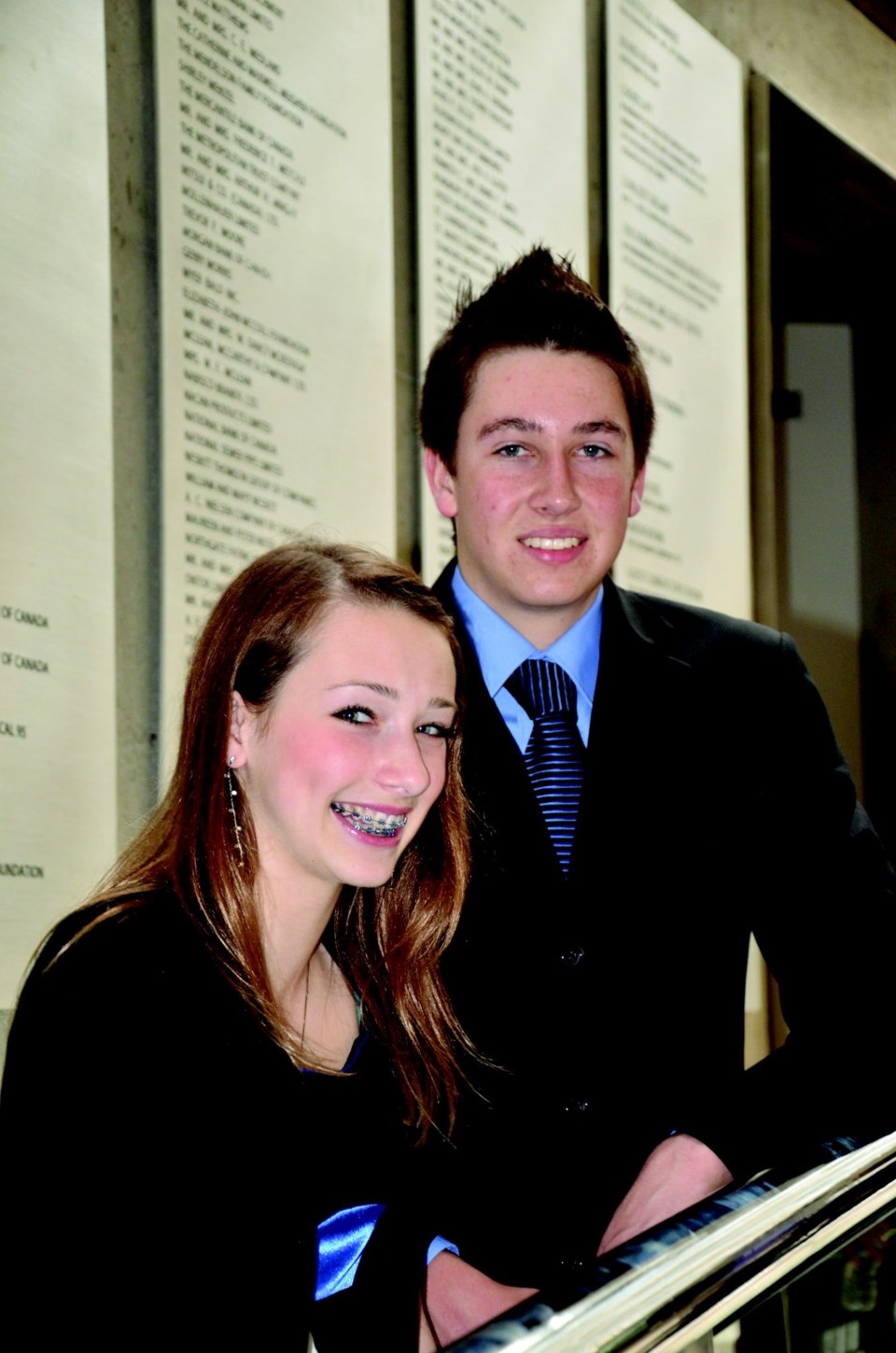Apple cores, orange peels, banana skins and other kitchen waste usually end up in people's garbage cans.
High school students Forrest Tower and Ashley Anderson think have a much better alternative to offer our throwaway society, an idea they've cooked up as a science fair project to provide a cheap heat and light source for poor countries.
Their project to find a Third World application for biofuel technology was worthy of a senior-level bronze medal earlier this year at the Canadawwide Science Fair in Toronto and that led to their selection as the only Canadians competing in the Taiwan Science Fair in Tapei, Feb. 5-11.
"It's really exciting to get to represent Canada,"said Anderson, 16, a Grade 11 student at Westside Academy. "It's innovative and they like projects that have a purpose. A lot of projects are theoretical and have no applications in society, but we can actually solve a problem that is globally known."
Tower and Anderson found all it takes to create a biodigester to produce cooking or heating fuel is two 208-litre plastic drums (one for the biofuel mixture, one to collect the gas), some plastic tubing and valves, a two-litre pop bottle, water and organic waste. A burner needed to disperse the methane fuel requires only a couple of copper rods and elbows, and a few nuts, washers and brackets, all needed to control the flow of oxygen which regulates heat dispersal.
The total cost of materials was about $50. Making it affordable and easy to build and maintain were prime considerations in the project, knowing it could serve people in places like the village in Honduras where Tower rebuilt bicycles two years ago as part of youth services school group. On that trip, Tower saw for himself the potential benefits of a having a readily-available heat and light source in a region where poverty and a lack of infrastructure is common.
"We only had time to test it as heat, but because we know we can burn it, we could put it in a gas line and use it to produce light," said Anderson, 17, who attends Grade 12 classes at Westside.
"In Honduras, they only have light from the time the sun comes up until it goes down, and so women and children that are gathering wood for heating and cooking and washing clothes have no time to get any education because once it gets dark they can't see to read. If they could have a simple gas lamp where they could read or do anything for a few hours after dark it would improve their lives."
Science fair is compulsory at Westside for students from Grade 3 to Grade 9 and Anderson and Tower have used that as a springboard to success in regional, provincial and national competitions. Anderson won national recognition with Tower two years ago for her science fair study which devised a written test to determine the level of aggression in hockey players. Travel is one of the benefits of science fairs and Anderson is looking forward to the cultural experience of going to Taiwan, where they will be competing against 25 other countries.
Both plan to pursue post-secondary studies in science. Tower won a four-year scholarship for UNBC last year and is already enrolled in the environmental engineering program, while Anderson is an aspiring nurse who wants to study psychology. They've also been active in promoting science fairs, visiting elementary schools in Burns Lake, with plans to go to Mackenzie in January to sell kids on the merits of developing their own science projects.
"You can win money, you get university recognition and you have the ability to make friends all over the country and now internationally," said Anderson. "It's a good opportunity to meet other scientific minds and professors and other researchers and really make your way in the scientific world."



